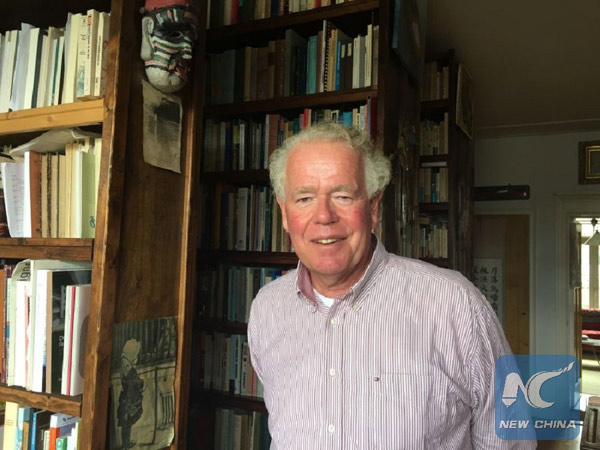# Peter Turchin: Exploring the Fascinating World of Historical Dynamics and Societal Trends
## Introduction to Peter TurchinPeter Turchin is a prominent figure in the field of historical dynamics, a discipline that examines the complex interactions……
## Introduction to Peter Turchin
Peter Turchin is a prominent figure in the field of historical dynamics, a discipline that examines the complex interactions between societal structures and historical processes. His work combines insights from history, sociology, and evolutionary biology to understand how societies grow, flourish, and sometimes collapse. Turchin's theories provide a framework for analyzing social phenomena over long periods, offering valuable lessons that can be applied to contemporary issues.
## Theoretical Foundations of Peter Turchin's Work
At the core of Peter Turchin's research is the idea that societal changes can be understood through the lens of mathematical models and statistical analysis. He employs concepts from cliodynamics, a term he coined to describe the quantitative study of historical dynamics. Turchin's models often focus on the interplay between population dynamics, social cohesion, and political stability. By analyzing historical data, he identifies patterns that can predict societal trends, making his work particularly relevant in today's rapidly changing world.

## Key Contributions of Peter Turchin
One of Turchin's significant contributions is the development of the "secular cycles" theory, which posits that societies undergo long-term cycles of growth and decline influenced by factors such as resource availability, social cohesion, and elite competition. He argues that these cycles are driven by complex interactions between various social forces, including economic conditions, political power, and cultural norms.
Additionally, Turchin has explored the concept of "elite overproduction," which refers to the phenomenon where the number of elites in a society outpaces the available positions of power. This imbalance can lead to increased competition among elites, resulting in social unrest and instability. Turchin's insights into elite dynamics provide a compelling explanation for many historical events, including revolutions and societal collapses.

## The Relevance of Peter Turchin's Theories Today
In an era marked by political polarization, social unrest, and economic inequality, the theories of Peter Turchin offer a lens through which we can better understand contemporary societal challenges. His work encourages us to consider the long-term implications of current trends, such as rising inequality and political fragmentation. By applying Turchin's models, policymakers and social scientists can gain insights into potential future scenarios, helping to devise strategies that promote social cohesion and stability.
Moreover, Turchin's emphasis on the importance of historical context serves as a reminder that the challenges we face today are not unique. History is replete with examples of societies grappling with similar issues, and understanding these patterns can inform our responses to current crises.

## Conclusion: The Legacy of Peter Turchin
Peter Turchin's contributions to the understanding of historical dynamics are invaluable. His innovative approach, which combines rigorous quantitative analysis with deep historical insight, provides a powerful toolkit for examining the complexities of human societies. As we navigate the challenges of the modern world, Turchin's work serves as a beacon, guiding us toward a more nuanced understanding of our past and its implications for the future. By studying the patterns identified by Peter Turchin, we can better prepare for the uncertainties that lie ahead, fostering resilience and adaptability in the face of change.